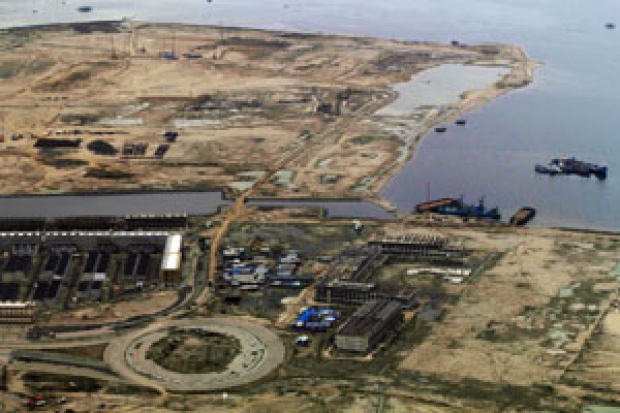Despicable Somersaulting
Translator
Editor
Kamis, 1 Januari 1970 07:00 WIB

TEMPO.CO, Jakarta - The government's latest actions on the land reclamation project in the Jakarta Bay casts serious doubts on its commitment to protect the environment. Moreover, when it revoked the construction moratorium on the reclaimed islets C and D, the environment and forestry ministry showed an attitude more biased towards the interests of developers instead of the public's aspirations.
It all started in May 2016. At the time, the environment and forestry ministry ordered the suspension of the reclamation project following the corruption investigation into Ariesman Widjaja, boss of Agung Podomoro, and Muhammad Sanusi, member of the Jakarta Regional Legislative Council (DPRD). Both were nabbed by the Corruption Eradication Commission (KPK) for giving and taking bribes in relation to the discussion of the draft regional zoning regulation for coastal areas and small islands. Agung Podomoro is one of the developers carrying out land reclamation to build one of the artificial islets in the Jakarta Bay.
As it became the public controversy, the government took a firm stance. To maintain the integrity of the development planning in the Jakarta Bay area, the President instructed incorporation of the reclamation project for 17 artificial islets into the national capital integrated coastal development (NCICD), including the construction of a giant sea dike. Consequently, the project was suspended pending the assessment of the National Development Planning Agency (Bappenas).
Later, however, efforts went behind closed doors to revoke the moratorium. Not only were the Bappenas assessments abandoned, the government turned a blind eye to the construction activities that were resumed on the islets C and D while the moratorium was still ongoing. More buildings popped up on the islets along with a bridge and artificial lakes.
As if to mock the regulation, the construction activities were carried out blatantly in daylight. Adding insult to injury, the provincial government and the environment ministry were adamant in denying there were such activities during the moratorium period.
The ministry’s argument that the moratorium was lifted because the reclamation concession holders had completed the environmental permit and the environmental impact analysis (Amdal) was also laughable. When the moratorium was enforced, the government set the condition that the concession holders must process the two permits alongside the NCICD. How were these permits issued even before the NCICD document was completed?
After a ‘successful’ revocation of the moratorium, the government is now accelerating the process to repeal the moratorium for the islet G. The construction of the last islet built close to the steam power plant also involves serious offenses including possible violation of the Amdal, such as obstructing water flow from Jakarta. Reflecting on what has occurred on the other two islets, it is very likely that similar ploys may have been used in the islet G project.
It is highly inappropriate for the government to side with businessmen who broke the law. It should not be affected by the developers’ plea for legal certainty for the projects that cost them hundreds of billions of rupiah. Allowing projects that violate regulations to continue, clearly smears the image of the government and causes public angst.
A conspiracy was also apparent in the National Land Agency’s (BPN) issuance of the land management rights for the islets C and D. Those legal documents served as the basis for the provincial government to issue the building permits. Absurdly, the two documents were issued when the moratorium was still in effect.
Even more astounding is the fact that the buildings on the islets were constructed a long time ago, possibly before the issuance of any building permits. These permits can only be given after the zoning regulation for coastal areas and small islands is passed. But, alas, after Ariesman and Sanusi were arrested, deliberation of the regulation at the DPRD stalled.
It is high time that the government put a permanent lid on this kind of rotten practice. Unscrupulous developers who build without permits must be nailed and punished. The KPK, meanwhile, must be alert as collusion between government apparatus and businesses usually involves bribes. The President, on the other hand, should re-enforce the moratorium until all issues are resolved.
Last but not least, the government must refrain from performing legal acrobatics just to defend a handful of greedy business people.
Read the full story in this week’s edition of Tempo English Magazine



















